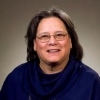| Name | Position | Program | Phone | |
|---|---|---|---|---|
 Rita K. Borzillo, J.D. Rita K. Borzillo, J.D. |
Chair, Center for Business Assistant Professor of Business |
Business | 215-248-7062 | Email me |
 Garry Flower, M.B.A., C.P.A. Garry Flower, M.B.A., C.P.A. |
Associate Professor of Business |
Business | 215-248-7180 | Email me |
 Catherine Gilstein, MBA, Ph.D. Catherine Gilstein, MBA, Ph.D. |
Assistant Professor of Business Program Director, Organizational Leadership |
Business | 215-248-7028 | Email me |
 William Rogers William Rogers |
Assistant Professor of Business |
Business | Email me |
| Name | Position | Program | Phone | |
|---|---|---|---|---|
 Jeffrey Carroll, Ph.D. Jeffrey Carroll, Ph.D. |
Chair, Center for Data & Society Associate Professor of Political Science |
Political Science & International Affairs | 215-753-3697 | Email me |
 Susan Ceklosky, M.S. Susan Ceklosky, M.S. |
Instructor in Computer Science |
Technology | 215-753-3633 | Email me |
| Alexander (AJ) Furia, Ph.D. |
Assistant Professor of Mathematics |
Mathematics | Email me | |
 Pamela King, M.S. Pamela King, M.S. |
Center for Data and Society Instructor of Digital Forensics |
Technology | 215-248-7145 | Email me |
| Kenneth Pyle |
Center for Data and Society Instructor |
Technology | Email me | |
 Jacqueline C. Reich, Ph.D. Jacqueline C. Reich, Ph.D. |
Associate Professor of Political Science Coordinator, Political Science and International Affairs majors, Global Awareness Seminar (general education course) |
Political Science & International Affairs | 215-248-7148 | Email me |
 Sarah Rody, Ph.D. Sarah Rody, Ph.D. |
Associate Professor of Mathematics |
Mathematics | 215-242-7727 | Email me |
| Anselee Trotta |
Assistant Professor of Mathematics |
Mathematics | ||
| Andrea Wentzell, M.A. |
Instructor in Computer Science |
Technology | Email me |
| Name | Position | Program | Phone | |
|---|---|---|---|---|
| Jane Ammon, Ed.D. |
Assistant Professor, Education (Special Education) |
Education | Email me | |
 Lauren M. Barrow, Ph.D. Lauren M. Barrow, Ph.D. |
Chair, Center for Education, Advocacy & Social Justice Associate Professor of Criminal Justice |
Sociology, Criminal Justice & Human Services | 215-242-7719 | Email me |
 Nancy DeCesare, IHM Nancy DeCesare, IHM |
Professor of Human Services |
Human Services | Email me | |
 Marie Leahy, SSJ, Ed.D. Marie Leahy, SSJ, Ed.D. |
Chair, Undergraduate Education Associate Professor of Education |
Education | 215-242-7757 | Email me |
| Concetta Lupo, Ed.D. |
Director, Education Leadership Graduate Program Assistant Professor of Education |
Education | Email me | |
 Ryan Murphy, Ph.D. Ryan Murphy, Ph.D. |
Assistant Professor of Sociology |
215-248-7032 | Email me | |
| Kathleen Smith, J.D. |
Associate Professor of Law and Legal Studies (Pre-Law) |
Sociology, Criminal Justice & Human Services | 215-248-7176 | Email me |
 Leonard Spearing, Ph.D Leonard Spearing, Ph.D |
Assistant Professor of Education |
Education | 215-248-7078 | Email me |
 Stephen Stunder, Ed.D Stephen Stunder, Ed.D |
Assistant Professor of Human Services Director, Human Services Management Graduate Program and Associate Director, School Counseling Graduate Program (Main Campus) |
Human Services | 215-753-3610 | Email me |
| Carissa Swiss, M.Ed. |
Director and Discipline Chair - Montessori Teacher Education Program Assistant Professor for Education, Advocacy, and Social Justice |
Education | 215-242-7957 | Email me |
| Name | Position | Program | Phone | |
|---|---|---|---|---|
 David Contosta, Ph.D. David Contosta, Ph.D. |
Chair, History Professor of History |
History | 215-248-7190 | Email me |
 Lorraine Coons, Ph.D. Lorraine Coons, Ph.D. |
Archivist Professor Emerita of History |
History | 215-248-7181 | Email me |
 Suzanne del Gizzo, Ph.D. Suzanne del Gizzo, Ph.D. |
Chair, Center for Integrated Humanities Professor of English |
English | 215-753-3626 | Email me |
 Mary Kathleen Flannery, SSJ, D.Min. Mary Kathleen Flannery, SSJ, D.Min. |
Associate Professor of Religious Studies Coordinator for Intercultural Foundations Certificate Program |
Religious Studies & Philosophy | 215-248-7087 | Email me |
| Ines Mula Garrido, Ph.D. |
Assistant Professor, Spanish |
|||
 Katya Gorker, M.F.A. Katya Gorker, M.F.A. |
Assistant Professor of Media and Communication - Film and Media |
Media & Communication | 215-242-7746 | Email me |
 Marie (Mia) Schilling Grogan, Ph.D. Marie (Mia) Schilling Grogan, Ph.D. |
Associate Professor of English Director of the Interdisciplinary Honors Program |
English | 215-753-3654 | Email me |
 Mary Helen Kashuba, SSJ, D.M.L. Mary Helen Kashuba, SSJ, D.M.L. |
Professor of French and Russian Foreign Language and Literature Department |
Foreign Language | 215-248-7124 | Email me |
 William Lauinger, Ph.D. William Lauinger, Ph.D. |
Associate Professor of Philosophy Multidisciplinary Coordinator |
Religious Studies & Philosophy | 215-242-7721 | Email me |
 Barbara Lonnquist, Ph.D. Barbara Lonnquist, Ph.D. |
Chair, English Professor of English |
English | 215-248-7178 | Email me |
| Stephen L. Martin, Ph.D. |
Chair, Religious Studies and Philosophy Assistant Professor |
Religious Studies & Philosophy | 215-248-7075 | Email me |
 Keely E. McCarthy, Ph.D. Keely E. McCarthy, Ph.D. |
Associate Professor of English Writing Program Administrator |
English | 215-753-3627 | Email me |
 Patrick McCauley, Ph.D. Patrick McCauley, Ph.D. |
Associate Professor of Religious Studies |
Religious Studies & Philosophy | 215-248-7000 ex.3657 | Email me |
 Kathleen McCloskey, SSJ, M.M.Ed. Kathleen McCloskey, SSJ, M.M.Ed. |
Chair, Music Assistant Professor of Music |
Art, Art History & Music | 215-248-7194 | Email me |
 Margaret Mary Murphy, SSJ, M.A. Margaret Mary Murphy, SSJ, M.A. |
Associate Professor of Latin |
Foreign Language | 215-248-7132 | Email me |
 Catherine Nerney, SSJ, Ph.D. Catherine Nerney, SSJ, Ph.D. |
Director of Institute for Forgiveness and Reconciliation Associate Professor of Religious Studies |
Religious Studies & Philosophy | 215-248-7099 | Email me |
| Brice Nixon, Ph.D. |
Chair, Media and Communication Assistant Professor of Media and Communication |
Media & Communication | Email me | |
 Gail Ramsey, M.A. Gail Ramsey, M.A. |
Assistant Professor of Media and Communication |
Media & Communication | 215-242-7724 | Email me |
| Name | Position | Program | Phone | |
|---|---|---|---|---|
 Carolyn Albright, Ph.D. Carolyn Albright, Ph.D. |
Chair, Health and Exercise Science Professor of Health and Exercise Science |
Health & Exercise Science | 215-248-7136 | Email me |
| Rebecca Eikey, Ph.D. |
Associate Professor, Chemistry |
Email me | ||
|
|
Associate Professor of Psychology |
Psychology (SUS) | 215-248-7129 | Email me |
 Joseph Kulkosky, Ph.D. Joseph Kulkosky, Ph.D. |
Chair, Biology Professor of Biology |
Biology | 215-248-7157 | Email me |
| Janelle Leo |
Assistant Professor of Biology |
Biology | Email me | |
| Hilton Oyamaguchi, Ph.D. |
Assistant Professor of Biology |
Biology | Email me | |
| Dawn Schramm, M.S. |
Instructor of Health and Exercise Science |
Health & Exercise Science | Email me | |
 Ian Sharp, Ph.D. Ian Sharp, Ph.D. |
Assistant Professor of Psychology Interim Chair of Undergraduate Psychology Department |
Psychology (SUS) | 215-248-7166 | Email me |
| Elliott Tammaro, Ph.D |
Assistant Professor of Physics |
Physics | 215-248-7128 | Email me |
| Hannah Venit, Ph.D. |
Assistant Professor, Biology |
Biology | Email me | |
| Jennifer Wade, Ph.D. |
Assistant Professor |
Psychology | Email me | |
 Karen S. Wendling, Ph.D. Karen S. Wendling, Ph.D. |
Chair, Center for Natural & Behavioral Sciences Associate Professor of Chemistry |
Chemistry | 215-248-7080 | Email me |
| Name | Position | Program | Phone | |
|---|---|---|---|---|
| Alyssa Callaway, M.S., LMFT, CST |
Instructor of Psychology Coordinator of Master's Field Placements, Main Campus |
Psychology | 215-248-7034 | Email me |
| Andrea Casher, Psy.D., ABPP |
Associate Professor of Psychology |
PsyD | Email me | |
 Carol Corbett, Ph.D., LPC Carol Corbett, Ph.D., LPC |
Assistant Professor of Psychology, Coordinator of Master's Field Placements Director, Master’s in School Counseling Program, Lehigh Valley Campus at DeSales University |
Master's Psychology | 610-282-1100 ext. 1950 | Email me |
 Claudia García-Leeds, Ph.D. Claudia García-Leeds, Ph.D. |
Associate Professor of Psychology Co-Director of Master's Program in Clinical and Counseling Psychology, Main Campus |
Master's Psychology | 215-242-7747 | Email me |
|
|
Assistant Professor of Psychology |
PsyD | 215-248-7162 | Email me |
 Corrie Jackson, Ph.D. Corrie Jackson, Ph.D. |
Chair, Center for Professional Psychology Associate Professor of Psychology |
PsyD | 215-248-7068 | Email me |
 Mark E. Kenney, M.Ed., NCC, LPC Mark E. Kenney, M.Ed., NCC, LPC |
Director of Master's Program in Clinical and Counseling Psychology, Lehigh Valley Campus at DeSales University |
Psychology | 610-282-1100 (ex. 1484) | Email me |
 Jade Logan, Ph.D., ABPP Jade Logan, Ph.D., ABPP |
Assistant Professor of Psychology Director, Chestnut Hill College Doctoral Internship Consortium |
PsyD | Email me | |
 Kevin McCarthy, Ph.D. Kevin McCarthy, Ph.D. |
Associate Professor of Psychology Executive Director, Center for Concussion Education and Research |
PsyD | 215-248-7115 | Email me |
 Bindu Methikalam, Ph.D. Bindu Methikalam, Ph.D. |
Director of Clinical Training for PsyD Program Associate Professor of Psychology |
PsyD | 215-248-7070 | Email me |
 Nicole Monteiro, Ph.D. Nicole Monteiro, Ph.D. |
Assistant Professor of Psychology |
Master's Psychology | 215-242-7767 | Email me |
|
|
Associate Professor of Psychology |
PsyD | Email me | |
 Cheryll Rothery, PsyD, ABPP Cheryll Rothery, PsyD, ABPP |
Professor of Psychology |
PsyD | 215-248-7023 | Email me |
 Rachel Saks, PsyD Rachel Saks, PsyD |
Associate Professor of Psychology |
Master's Psychology | 215-248-7160 | Email me |
 Leslie Parkes Shralow, Ph.D. Leslie Parkes Shralow, Ph.D. |
Assistant Professor of Psychology Co-Director, Master's Program in Clinical and Counseling Psychology, Main Campus |
Psychology | 215-248-7024 | Email me |
| Name | Position | Program | Phone | |
|---|---|---|---|---|
 Aída Beaupied, Ph.D. Aída Beaupied, Ph.D. |
Professor Emerita of Foreign Languages |
Foreign Language | Email me | |
 Scott Browning, Ph.D., ABPP Scott Browning, Ph.D., ABPP |
Professor Emeritus of Psychology |
PsyD | Email me | |
 Marie A. Conn, Ph.D. Marie A. Conn, Ph.D. |
Professor Emerita of Religious Studies Fellow of Thanatology |
Religious Studies & Philosophy | Email me | |
 Suzanne Conway, M.A. Suzanne Conway, M.A. |
Professor Emerita of Art History |
Art, Art History & Music | Email me | |
 Kathleen Duffy, SSJ, Ph.D. Kathleen Duffy, SSJ, Ph.D. |
Professor Emerita of Physics |
Physics | Email me | |
 Jean Faustman, SSJ, D.M.L. Jean Faustman, SSJ, D.M.L. |
Professor Emerita of French and Spanish |
Foreign Language | Email me | |
 Barbara Glennon, SSJ, D.M.A. Barbara Glennon, SSJ, D.M.A. |
Professor Emerita of Music |
Art, Art History & Music | Email me | |
 Sara Ellen Kitchen, J.D. Sara Ellen Kitchen, J.D. |
Professor Emerita of Criminal Justice |
Sociology, Criminal Justice & Human Services | Email me | |
 Robert Meyer, Ph.D. Robert Meyer, Ph.D. |
Professor Emeritus of Biology |
Biology | Email me | |
 Joseph A. Micucci, Ph.D., ABPP Joseph A. Micucci, Ph.D., ABPP |
Professor Emeritus of Psychology |
PsyD | Email me | |
 Lisa Olivieri, SSJ, Ph.D. Lisa Olivieri, SSJ, Ph.D. |
Professor Emerita of Computer Science |
Technology | Email me | |
 Carmen Villegas Rogers, Ed.D. Carmen Villegas Rogers, Ed.D. |
Professor Emerita of French, Italian, and Spanish |
Foreign Language | Email me | |
 Merilyn Ryan, SSJ, Ph.D. Merilyn Ryan, SSJ, Ph.D. |
Professor Emerita of Mathematics |
Mathematics | Email me | |
 Rita Michael Scully, SSJ, M.A. Rita Michael Scully, SSJ, M.A. |
Professor Emerita of English |
English | Email me | |
 Kenneth J. Soprano, Ph.D. Kenneth J. Soprano, Ph.D. |
Professor Emeritus of Biology |
Biology | Email me | |
|
|
Professor Emerita of Mathematics |
Mathematics | Email me | |
 Kathleen Helen Szpila, SSJ, Ph.D. Kathleen Helen Szpila, SSJ, Ph.D. |
Professor Emerita of Art History |
Art, Art History & Music | Email me |